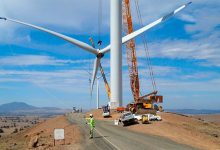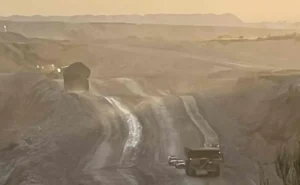As many as 11,000 renewable energy jobs could be at risk under the Morrison government’s climate and energy policies, according to new research that shows ‘business as usual’ will see renewables investment fall off a cliff in the next few years.
The study undertaken by the University of Technology Sydney’s Institute of Sustainable Futures (UTS:ISF) found that unless new policies are introduced to support further investment in the sector, renewable energy employment could drop from its current level of around 27,000 jobs, to a little more than 15,000 jobs by 2022.
UTS:ISF modelled three different scenarios, based either on the Morrison government’s current climate and energy policy settings, or under more ambitious investment scenarios.
If the Morrison government was to embrace policies that supported an increased uptake of rooftop solar and battery storage technologies, the renewable energy sector could add almost 20,000 new jobs in the same time frame, growing to more than 45,000 total positions.
The third, “step change” scenario, which would embrace a strategy of ‘aggressive decarbonisation‘ through investments in all clean energy technologies, including large-scale solar and wind projects, total employment in the sector would grow to just over 40,000 jobs.
In each case, an ambitious plan for the renewable sector, employment could grow to outrank the coal industry in terms of total employment.
Blue-collar workers, and regional communities, would be the largest beneficiaries of strong renewable energy policies, with the largest employment segment set to be represented by electricians and other labourers, in addition to new jobs created in the professional services and sales sectors.

“When people think of jobs in renewable energy, they often think of an installer on a roof putting in solar panels – but renewable energy creates employment for a diverse range of occupations. The leading groups are trades and technicians, labourers and professionals,” the report says.
Under the Step Change scenario, over 8500 jobs would be created on average per annum for trades and technicians, and over 8000 jobs for labourers and professionals.”

“Around two-thirds of renewable energy jobs could be created in regional areas. Renewable energy jobs are distributed more widely across regional areas than the coal sector, which concentrates jobs in a handful of regions,” the report adds.
The results highlight what is at stake in the Morrison government’s approach to both the Covid-19 economic challenge, as well as the decarbonisation challenge created by climate change.
The Clean Energy Council urged both sides of politics to find a common ground on climate policy, with enduring bipartisan support, to provide the certainty necessary to support ongoing investment in the renewables sector.
“The hundreds of large-scale wind and solar projects that have been identified with planning approval can inject over $50 billion worth of investment to revitalise economic activity in our regional and rural communities,” Clean Energy Council chief executive Kane Thornton said.
“Sensible energy policy is the way forward to prepare Australia for the future by delivering economic growth and carbon abatement.”
Reacting to a speech by federal Labor leader Anthony Albanese, which proposed the two major parties come together to negotiate a settled bipartisan position on climate and energy policy, federal energy and emissions reduction minister Angus Taylor claimed the Morrison government was already “nailing it”.
“We’ve got strong targets. We’re focused on emissions reduction,” Taylor said. “We’re delivering. We’re going to over deliver on our 2020 targets by a significant margin, 411 million tonnes as of December last year. We’re nailing it and we will continue to because this matters.”
Federal Labor party spokesperson for climate change and energy Mark Butler said the report highlighted the risks in the Morrison government’s approach to energy policy and the lack of support it has offered to the renewables sector.
“The Government’s juvenile reaction to Labor’s call for bipartisan energy policy has shown their true colours. When Australia is in its first recession in three decades, the Morrison Government has shown it is anti-jobs, anti-business and anti-bipartisanship,” Butler said.
“Reaction from a range of stakeholders shows the country is crying out for energy policy certainty.”
“Only the Morrison Government thinks they’re “nailing it”. The rest of their country knows they’re squibbing it.”
On Thursday, the Australia Energy Council, which represents the largest players in the Australian energy sector became the latest industry body to embrace a target of achieving zero net emissions by 2050.
“The first step to reducing carbon emissions is agreement on a long-term target which can act as the starting point for constructive consensus,” the Australian Energy Council’s chief executive Sarah McNamara said.







